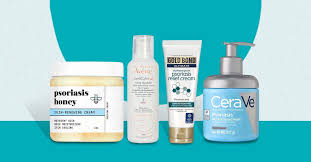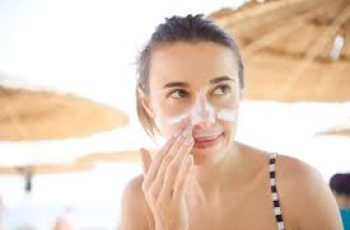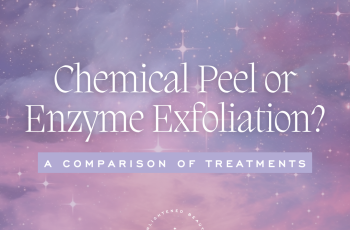
What is the Best Psoriasis Cream? A Complete Guide to Soothing and Treating Psoriatic Skin
Psoriasis is a chronic skin condition that causes red, itchy, and scaly patches (plaques) on the skin.
While prescription treatments—including injectables and oral medications—are highly effective, they take time to work.
During that waiting period, and especially for milder cases, a good psoriasis cream can bring essential relief.
In this guide, we’ll cover the best creams for psoriasis, how they work, and what ingredients to look for based on your symptoms.
How Do Psoriasis Creams Work?
There are four main categories of psoriasis creams, each serving a different purpose:
Soothing and Hydrating Psoriasis Creams
Psoriasis Creams That Remove Scales
Medicated Over-the-Counter Psoriasis Creams
Prescription Psoriasis Creams
Let’s explore each one in more detail.
1. Soothing and Hydrating Psoriasis Creams
These creams focus on relieving dryness and itching—two hallmark symptoms of psoriasis. They don’t treat the underlying inflammation but offer crucial comfort and barrier protection.
Best Ingredients for Hydrating Psoriasis Creams:
Argan Oil – Rich in linoleic acid, a soothing fatty acid
Stearic Acid – A moisturizing fatty acid that prevents water loss
Glycerin – A powerful humectant that draws moisture into the skin
MLE Technology – Mimics the skin’s natural lipid barrier to lock in hydration
Top Picks:
For the Body:
Zerafite Ultra Rich Body Cream
Fragrance-free, non-staining, and deeply hydrating—ideal for body plaques.
Skinceuticals Triple Lipid Restore
Lipid-rich formula softens plaques and reduces roughness and itch.
For the Face & Neck:
Zerafite Barrier Repair Moisturizer
Best for dry, scaly facial psoriasis. Hydrates and prevents further moisture loss.
Zerafite Soothing and Calming Moisturizer
Ideal for facial psoriasis that’s red or inflamed. Contains calming niacinamide and argan oil.
For the Eyelids:
Zerafite Hydrating and Protecting Eye Serum
Gentle, steroid-free formula with niacinamide to protect delicate skin around the eyes—an area easily irritated by psoriasis medications.
2. Psoriasis Creams That Remove Scales
These exfoliating creams help lift and remove the thick silvery scales often associated with psoriasis. Most contain exfoliating acids.
Best Ingredients for Scale Removal:
Salicylic Acid (BHA) – Loosens scales and soothes inflammation
Lactic Acid (AHA) – Hydrates while gently exfoliating
Glycolic Acid or Gluconolactone – Additional options for exfoliation
⚠️ Note: These can sting, especially on cracked or raw skin. Avoid on open areas.
Top Picks:
CeraVe Psoriasis Moisturizing Cream
Combines salicylic acid and lactic acid to soften plaques while maintaining hydration.
NeoStrata Problem Dry Skin Cream
High in AHAs, ideal for thick skin on knees, elbows, and heels. Fragrance-free and emollient-rich.
3. Medicated Over-the-Counter Psoriasis Creams
These creams usually contain low-dose corticosteroids (like hydrocortisone) or other active ingredients that provide moderate anti-inflammatory effects.
Hydrocortisone Creams
Mild and suitable for short-term use on the face and sensitive areas.
Should be used under guidance, especially near the eyes.
Coal Tar Creams or Shampoos
An old-school treatment that slows skin cell growth.
Still used for scalp psoriasis but less popular due to strong odor and staining.
4. Prescription Psoriasis Creams
For moderate to severe psoriasis, prescription creams are often required. These are more potent and must be used under medical supervision.
Common Prescription Options:
High-potency corticosteroids – Reduce inflammation but risk side effects with long-term use
Vitamin D analogs (e.g., Calcipotriol) – Slow skin cell overgrowth
Topical Retinoids (Vitamin A derivatives) – Improve turnover and reduce plaques (not suitable during pregnancy)
Immunosuppressants (e.g., Tacrolimus, Pimecrolimus) – Help reduce immune-driven inflammation
Anthralin – Slows cell growth but can irritate and stain skin/clothing
A dermatologist will help decide which is best based on severity, location, and medical history.
Natural Oils for Psoriasis Relief
Natural oils can support mild psoriasis by restoring skin barrier function—especially those rich in linoleic acid.
Best Natural Oils for Psoriasis:
Argan Oil, Safflower Oil, Grapeseed Oil, Borage Seed Oil
Try: PAORR 100% Organic Argan Oil – affordable, effective, and soothing.
Avoid:
Coconut Oil – Low in linoleic acid and can clog pores or worsen psoriasis.
What About Essential Oils?
Despite popular belief, essential oils do not treat psoriasis. They lack the fatty acids required to repair the skin barrier and can cause irritation.
Cream, Lotion, Ointment, or Oil—What’s Best?
For psoriasis, skip the lotion. Here’s a breakdown:
Form Best For Why
Cream Daily hydration Balanced water/oil content for comfort
Ointment Severe dryness & scaling Occlusive and helps medication penetrate
Oil Mild symptoms or natural care Easy to apply, soothing, non-irritating
Lotion ❌ Not recommended Often too light, may contain alcohols
When Should I Apply Psoriasis Creams?
Apply prescription medications first, directly to the skin.
Then, layer a moisturizer or barrier repair cream on top to lock it in.
This layering helps:
Improve medication absorption, Reduce dryness and itching, Prevent rubbing off onto clothes
Why Moisturizers Are Crucial for Psoriasis
Even if you’re using powerful prescription treatments, a moisturizer is essential. It helps:
Calm itching and dryness
Reduce scale buildup
Enhance medication effectiveness
Protect the skin barrier
The Final Word on Psoriasis Creams
Psoriasis can be persistent, but with the right combination of treatments—both medical and moisturizing—you can manage symptoms effectively.
Whether you opt for a soothing cream, exfoliating treatment, or prescription medication, consistency is key.
And remember: For moderate to severe cases, always consult a board-certified dermatologist. Want a personalized skincare plan based on your skin type? Let’s find your perfect psoriasis routine together.
DQH Knowledge drop: In your 20s, your skin cell turnover decreases. (Cell turnover is a key component in keeping your skin youthful.) You know what else slows down? Your collagen production. Starting in your 20s, collagen decreases by about 1 percent per year. Should you want to prevent fine lines and wrinkles, start by eliminating behaviors that contribute to premature aging. “If it’s bad for you, it’s bad for your skin,” says dermatologist Michel Somenek.
“Cigarette smoking reduces blood flow to the skin and causes premature wrinkling and a dull skin texture. Making the repeated pursed motion to inhale can also cause smoker’s lines. Alcohol and recreational drugs are toxins for the skin that damage its cellular structure and DNA,” Somenek tells us. “The faster you eliminate vices while you are young, the better chance your skin and body have to recuperate.” Also, adopting an anti-aging routine in your 20s is key. After all, the best offense is a good defense. We spoke to Somenek and experts Joshua Ross and Audrey Kunin to find out more.
Keep reading for the best anti-aging products for your 20s, according to skincare professionals.
Sunscreen
“We all know that the sun is the number one cause of skin aging and starting the prevention in your 20s is very important,” Ross says. “The majority of your sun damage won’t start to appear until you’re in your 30s, so don’t wait until you see it surface or you’ll be behind the curve. Stay ahead of it with a good-quality zinc-based sunscreen worn daily.”
Farmacy Green Defense Daily Mineral Sunscreen
An invisible sunscreen with SPF 30, plus botanical extracts meant to protect skin with tons of antioxidants. Bonus: It’s clean and fine to use under makeup.
Bareminerals Complexion Rescue™ Tinted Moisturizer Broad Spectrum SPF 30
Although we recommend you use your SPF and moisturizer separately, we also understand moments when you don’t have time or energy for that extra step. For those times, this bareMinerals moisturizer is a great thing to have on hand.
Vitamin C Serum
“A great introduction to anti-aging is to start with a vitamin C serum in your morning skincare routine,” Ross says. “It’s a powerful antioxidant that will neutralize free radicals and brighten the skin.” He adds that it’s a great way to counteract the effects of the sun’s harmful rays, which, as previously mentioned, are among the biggest causes of premature aging.
Drunk Elephant C-Firma™ Vitamin C Day Serum
The Drunk Elephant C-Firma is a lightweight serum that promises to give skin a glow by combining the brightening powers of vitamin C with ferulic acid, l-ascorbic acid, and vitamin E. The included sodium hyaluronate is meant to replace hydration loss, so you shouldn’t have to deal with any irritation.
Sunday Riley C.E.O. Rapid Flash Brightening Serum
This potent serum is jam-packed with vitamin C (15 percent, to be exact), which means it’s a potential superstar at both brightening skin and dousing it in antioxidants.
Peptides
Using peptides on your skin has many benefits, says Somenek. “The skin barrier is what defends the body against pollution, UV rays, bacteria, and toxins. It can be damaged by several everyday factors. Using topical peptides aids in building a stronger barrier,” he says. “Peptides comprise elastic fibers, which are a type of protein. These fibers help to make skin appear taut and firm. Peptides can also help repair damaged skin, relieve inflammation, and even out skin tone. Some peptides can kill acne-causing bacteria that is common in 20-somethings.”
Kunin agrees, saying, “Peptides are an excellent entry point for supporting collagen.” She recommends looking for face and eye treatments that contain these collagen-boosting powerhouses.
Charlotte Tilbury Magic Eye Rescue Cream
This Charlotte Tilbury super-emollient eye cream has a base of coconut oil and shea butter (read: it’s incredibly hydrating). Botanicals plus peptides are meant to help reduce dark circles and boost collagen, respectively.
This creamy moisturizer serves up potent collagen-boosting peptides and pycnogenol, and antioxidant-rich vitamin C. “Instead of sitting on top of the skin, peptides penetrate the outer layer so they go deep. The ‘signals’ they send tell the cells to produce elastin and collagen, which are needed for youthful-looking skin,” explains Somenek.
At-Home Peel Pads
Remember that skin cell turnover fiasco we talked about earlier? One way to help support it is by exfoliating. “Exfoliation is important to help keep skin fresh and luminous,” Kunin says. She recommends using at-home peel pads as an easy and effective way to exfoliate.
“The goal in your 20s is to fight the slowing pace of cell turnover. It is wise to use products that gently exfoliate, yet still remove oil and other impurities. Products that have Alpha Hydroxy Acids (AHA) or Beta Hydroxy Acids (BHA) are a good choice.”
According to Somenek, you should only exfoliate two to three times a week. “People of all ages are guilty of over-exfoliating and that can be too much of a good thing,” he says.
Dermadoctor Kakadu C Intensive Vitamin C Peel Pad
A few swipes of this Derma Doctor powerful peel pad promise to leave your skin glowing and smooth, thanks to the seven (yes, seven) types of chemical exfoliants, including AHA and BHA. It also contains vitamin C via Kakadu plum extract for added brightening and antioxidant protection.
KEY INGREDIENTS Kakadu plum extract is sourced from the Kakadu plum, a fruit grown in northern Australia. It contains vitamin C, which restores the skin’s natural barrier, increases collagen production, and soothes irritation.
Dr. Dennis Gross Skincare Alpha Beta® Universal Daily Peel Pads
These are the gold standard of peel pads, with a cult following and over 900 five-star reviews on Sephora. They’re easy to use and contain a blend of anti-aging exfoliating acids.
Emollient Night Cream
“In your 20s, you need to start upping the hydration in your skincare routine. You may have been cautious of over-moisturizing because of acne in your teens, but as you enter your 20s, your skin transitions and becomes drier,” Ross says. “I recommend an emollient night cream added into your evening skincare regimen.”
“Twenty-somethings need to make sure that they are not using creams that will clog their pores and cause excess oil production,” says Somenek. Opt for non-comedogenic products.
Cerave Skin Renewing Night Cream
One great choice is the CeraVe Skin Renewing Night Cream, which is a non-comedogenic night cream that leaves skin soft and glowy. It combines the moisturizing powers of ceramides and hyaluronic acid.
RoC Retinol Correxion Max Hydration Creme
“The best night cream ingredients contain retinol, benzoyl peroxide, and/or salicylic acid or hyaluronic acid. The goal is to moisturize, yet remove excess oil,” says Somenek. This Roc Retinol Correxion cream fits the bill as it contains both hyaluronic acid and retinol so it promises to moisturize while also being non-comedogenic.



